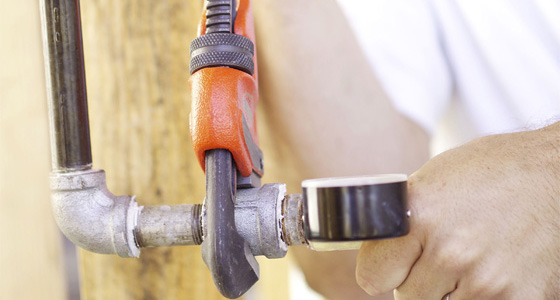As a civilization, we’ve had indoor plumbing for so long it’s easy to forget most of human history was lived without it. Yet plumbing is so central to our way of life we could hardly imagine doing without it.
All you have to do is flush a toilet or draw a bath to know how important plumbing is. It not only makes life easier, it prevents the spread of epidemic diseases and keeps cities from descending into the fetid cesspools of human waste they once were.
Plumbing, of course, is all about pipes. Essentially, it’s any system of pipes, valves, drains and fixtures that bring water and waste to and from buildings. The hard work of building, maintaining and fixing these systems is, naturally, performed by plumbers.

Why Is Plumbing So Important?
Plumbing has a long history in human culture, but for centuries it was abandoned by most of the world. The first plumbing reaches back to the ancient Greeks, Persians, Romans, Chinese and Indians. These societies all used some form of pipe to carry potable water to residents.
A multitude of materials were used to make pipes and the other fittings of early plumbing. Ancient Indians used soil and asphalt, while the Romans used stone for aqueducts and lead for pipes. But when the Roman empire died, plumbing fell out of use, and stayed that way for more than a thousand years.
With cities and towns returning to old methods of disposing of waste and providing water, disease flourished. Residents dumped their waste into open pits in the middle of residential areas, and often got their drinking water from sources so close to the sewage it teemed with cholera and other fecal-borne diseases.
By the 19th century, health officials finally saw plumbing as more than a matter of ancient convenience. They started advocating for the widespread use of sewers as a means to cut down on infectious disease and improve the generally noxious atmosphere of major cities. It worked, and remarkably well.
Plumbing in Modern Times
We’re so used to plumbing in modern times that we barely think about it, even though there are many parts of the world that still don’t have it. The more developed systems, including many communities in the United States, are so sophisticated they use massive sewage treatment plants to clean wastewater before releasing it into rivers and other water sources.
Our pipes today are mostly made of brass or plastic, with some other common materials. American pipes used to be made of lead or galvanized iron, but these are no longer used due in part to health concerns. Copper, another common pipe material, has also been largely replaced because of its higher cost.
Plumbing systems today are much more sophisticated than those of ancient societies. Their plumbing relied solely on gravity to deliver water. Ours use networks of high-pressure water pumps. Components of modern plumbing include pipe lengths, elbows, tees, valves and unions.
Plumbers are paid to install and repair plumbing systems. As skilled laborers, they are often unionized, and they are specially trained and regulated via state building codes, health laws and oth
Carter enjoys to write, and he covers many different topics when he writes. One of the topics he writes about is plumbing. If you want to learn more about plumbing, check out Clearwater Plumber.

